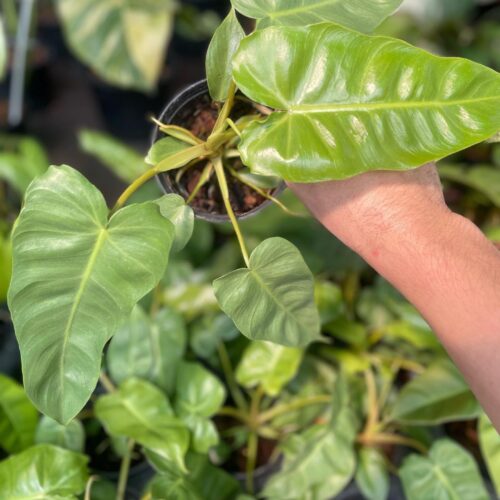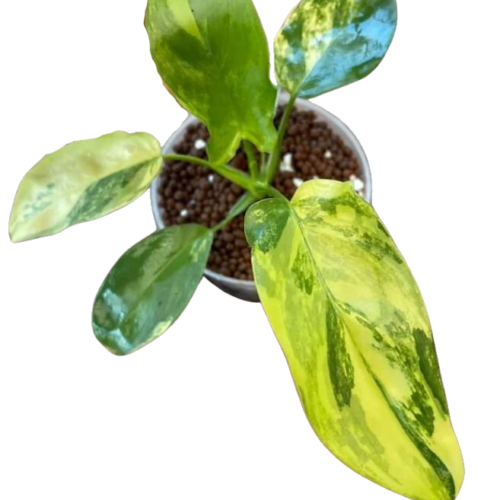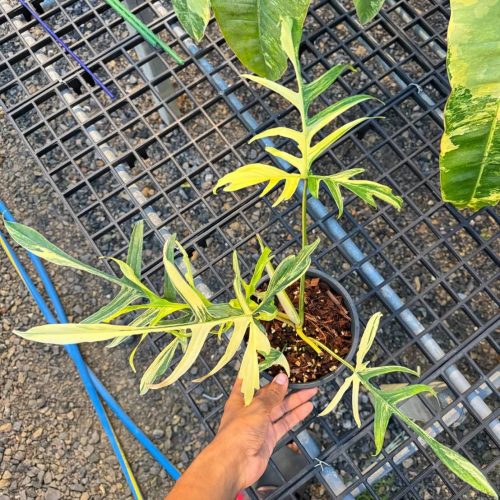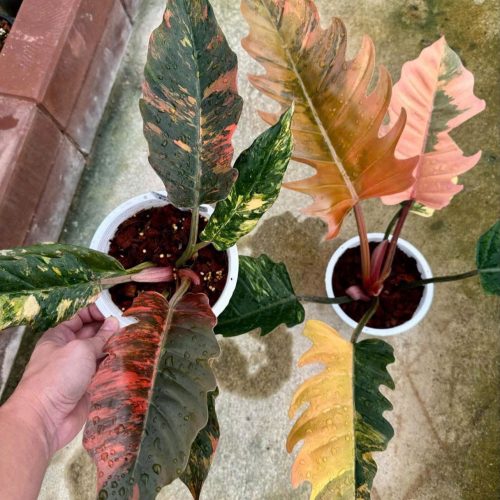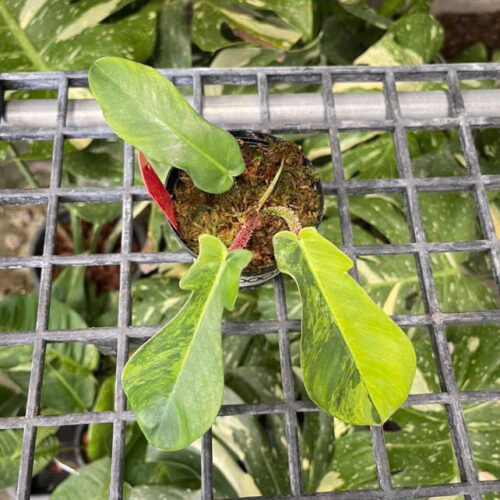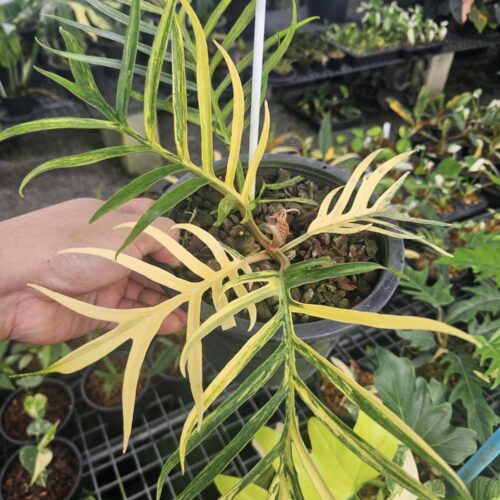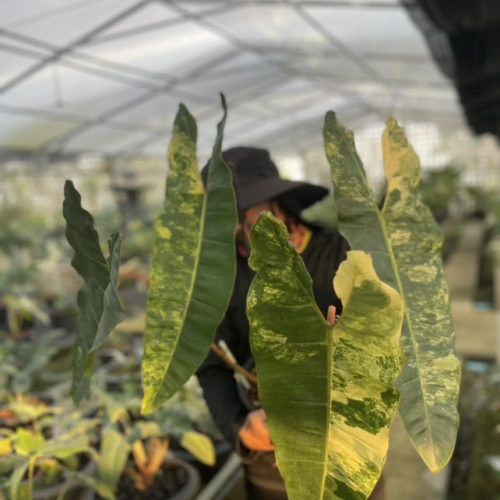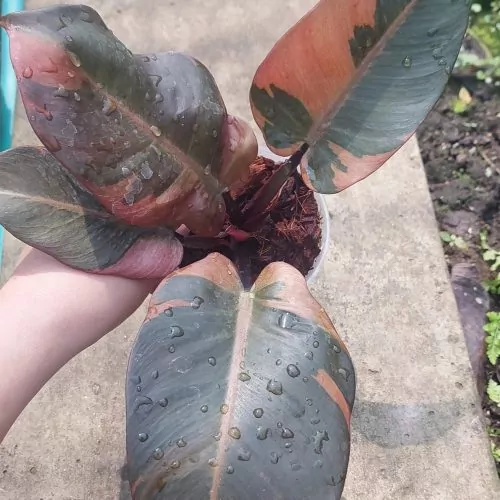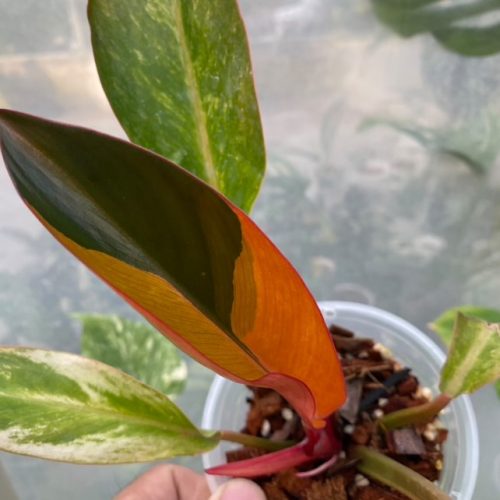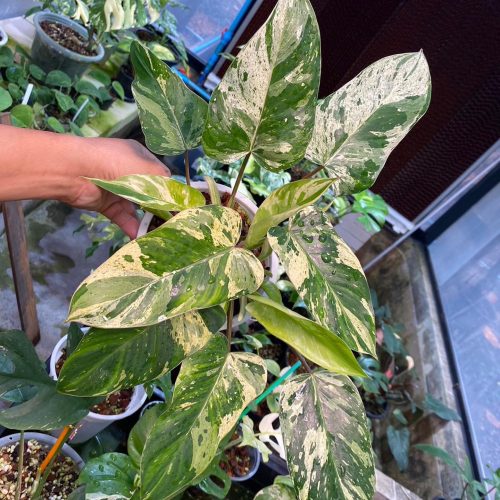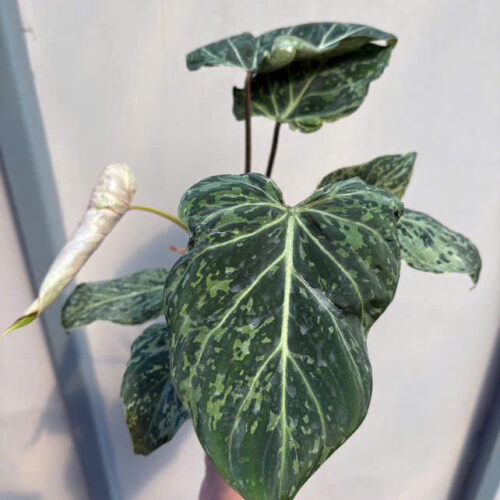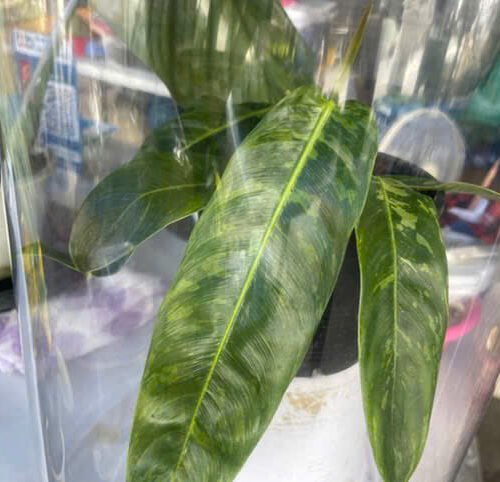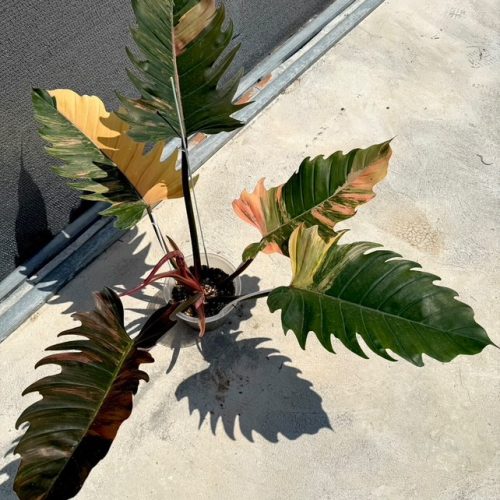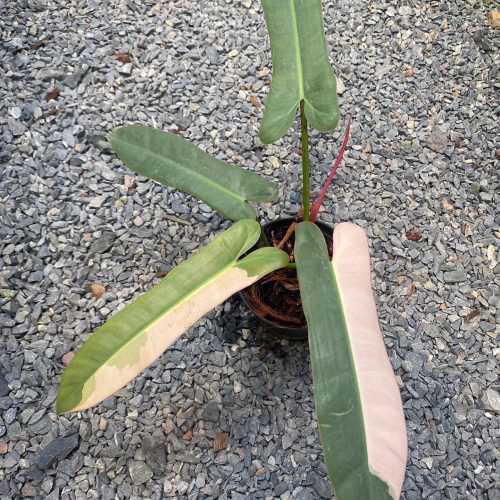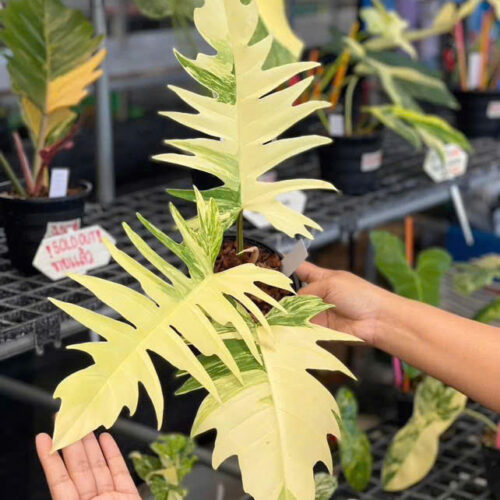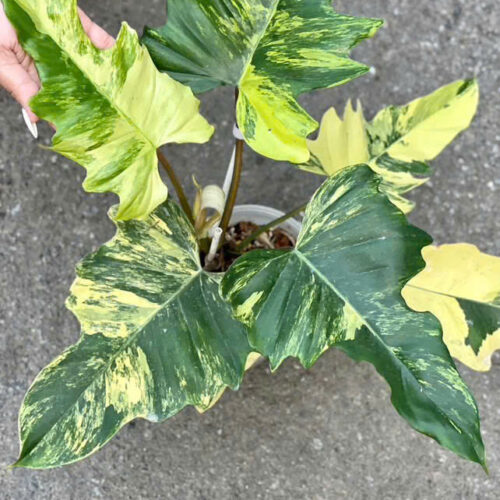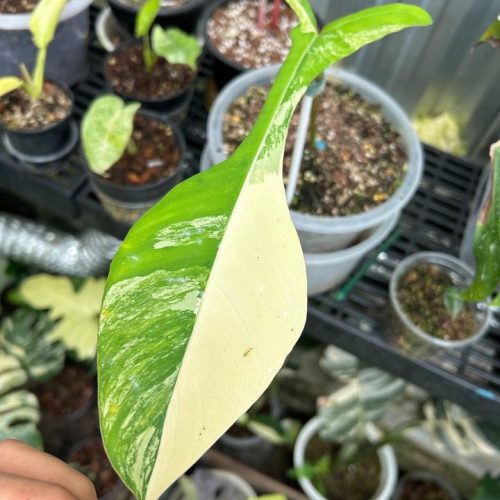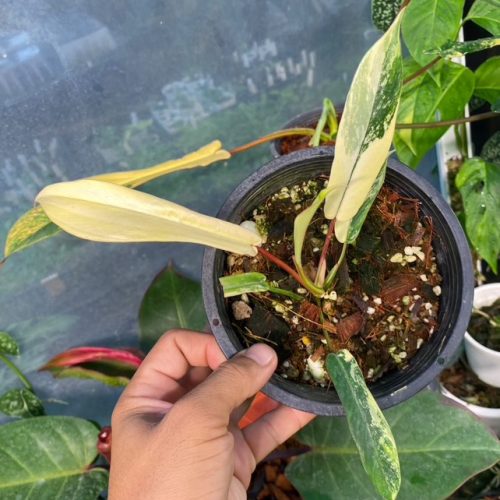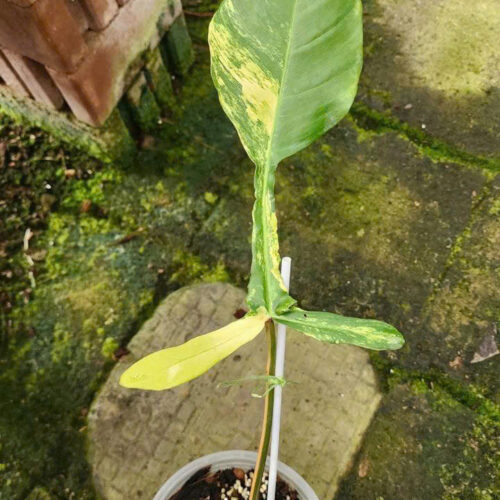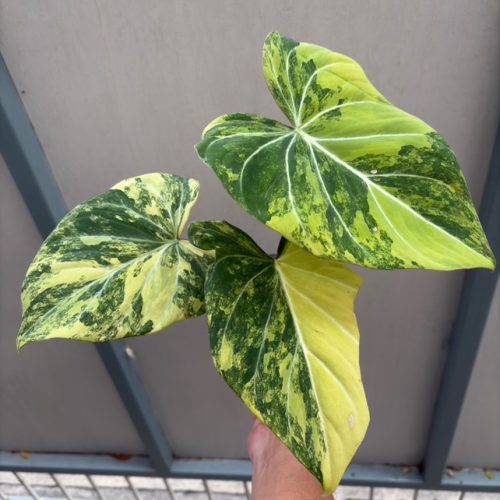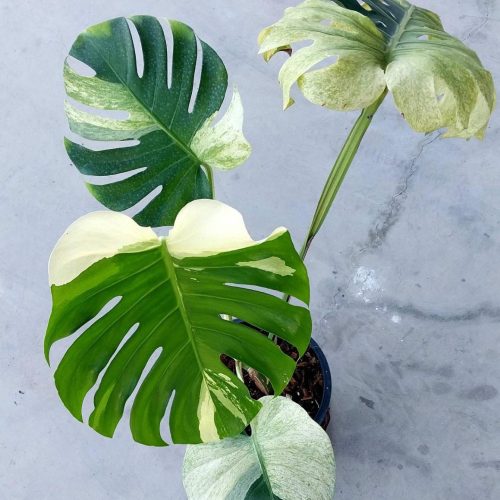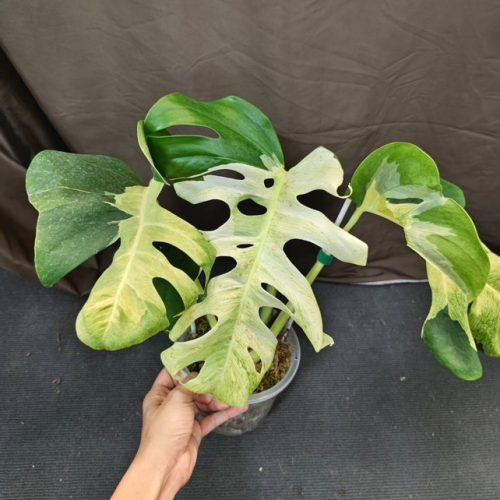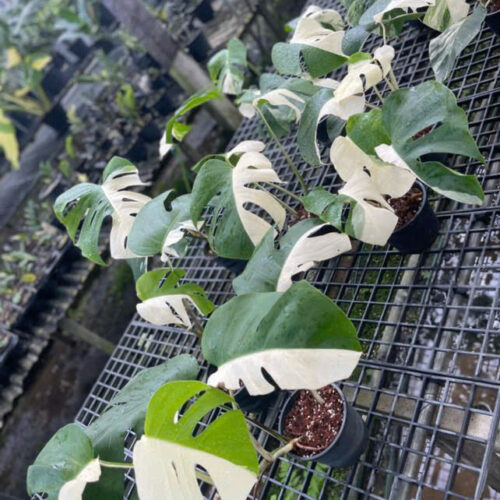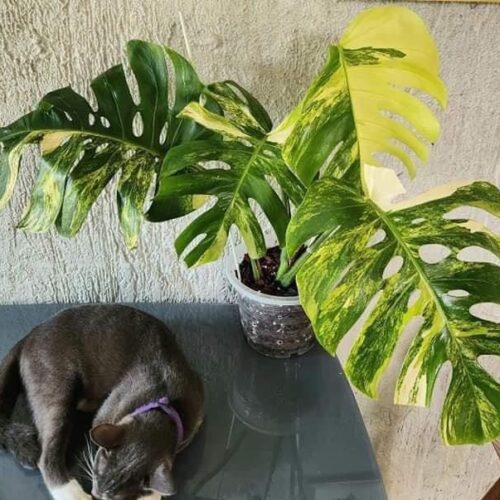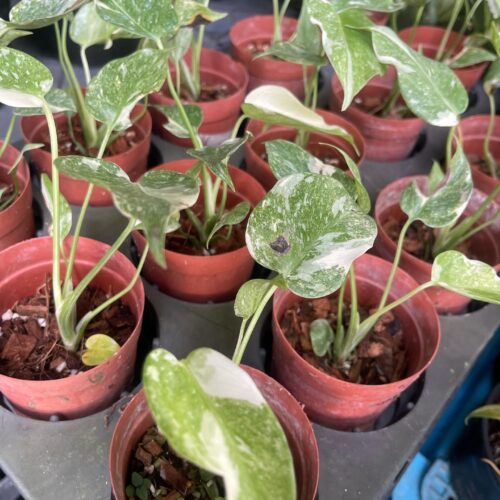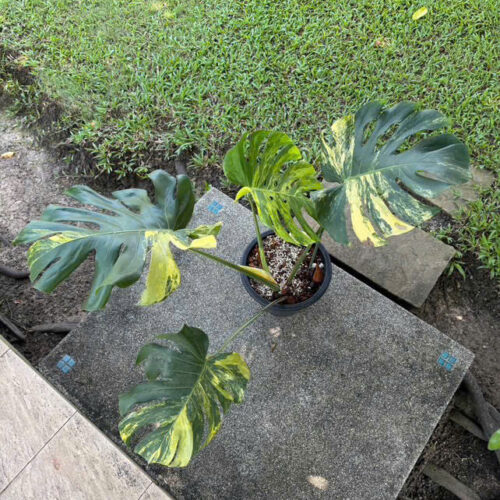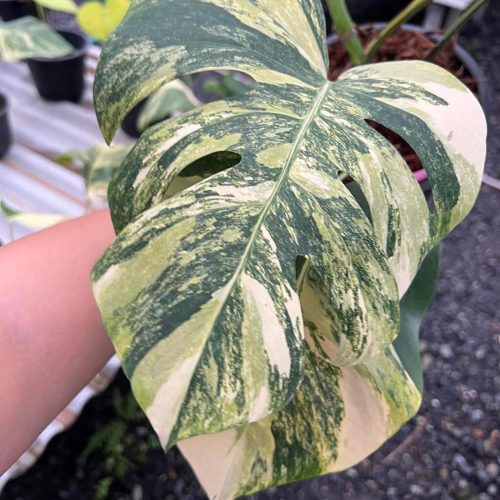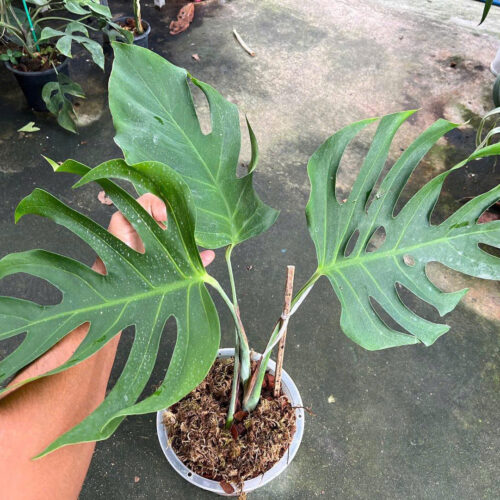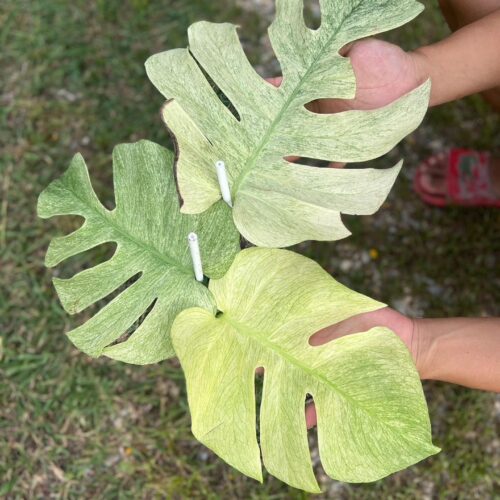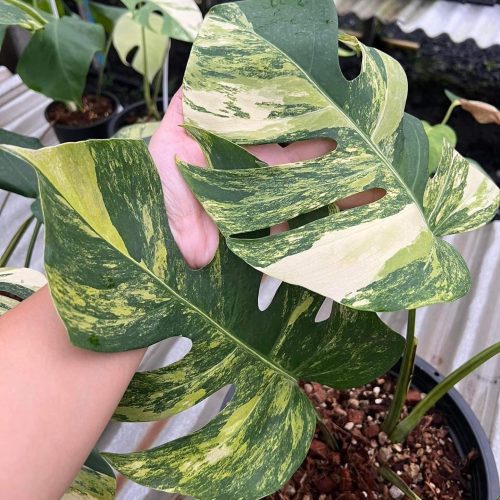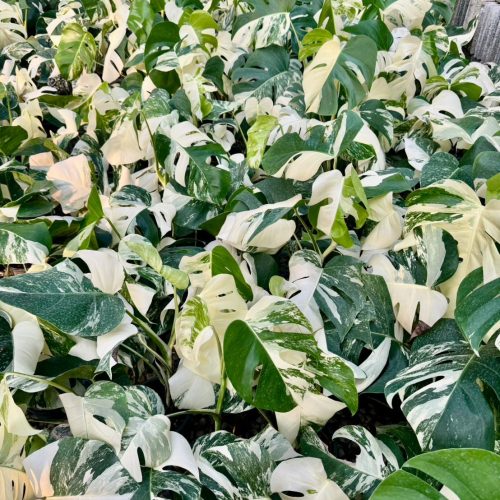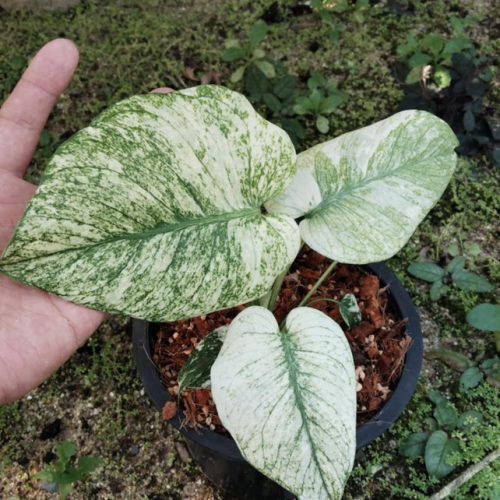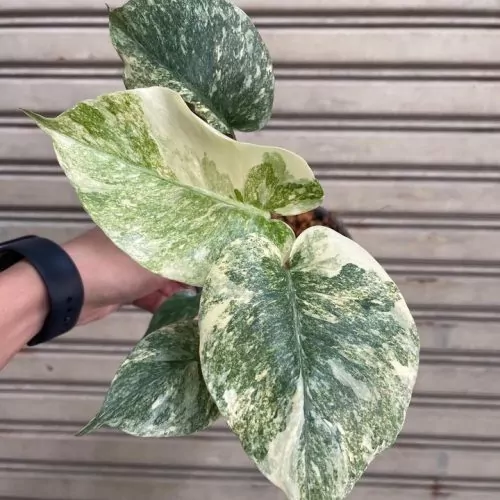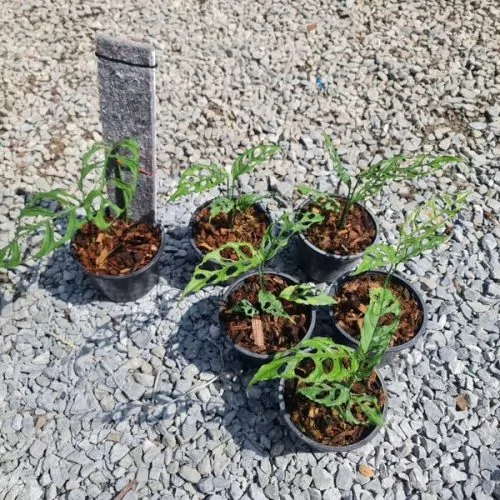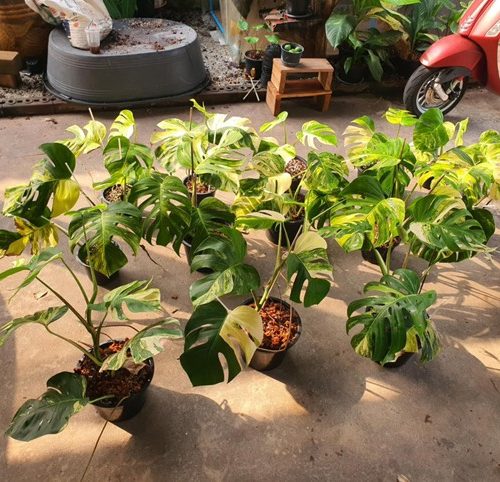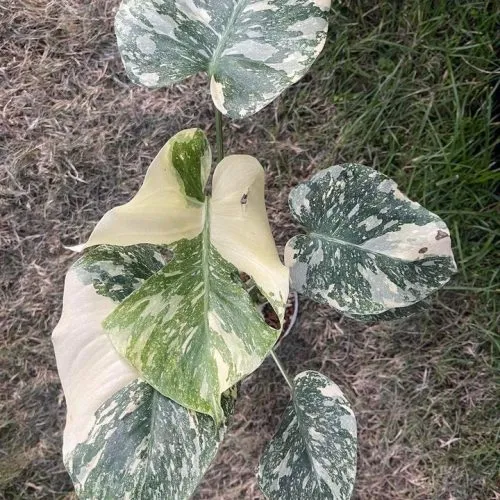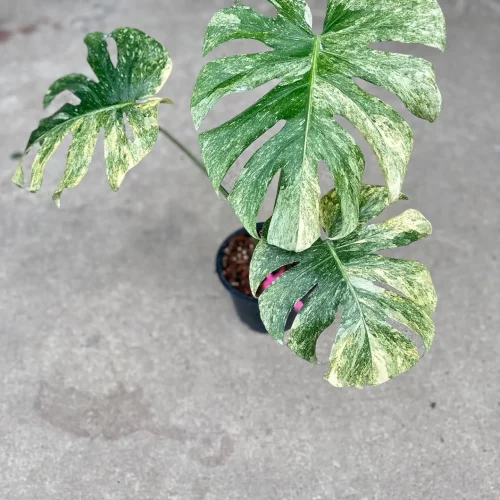The Monstera Albo, with its striking white variegation, has become one of the most coveted houseplants. However, its high price tag often leaves people wondering why this plant is so expensive. In this article, we will uncover the secrets behind the high cost of the Monstera Albo and what makes it so desirable.
Introduction
The Monstera Albo is a member of the aroid plant family, which includes popular varieties like Philodendron, Anthurium, and Aglaonema. Native to the tropical rainforests of Central and South America, this plant is prized for its beautiful variegated leaves. Similar to Syngonium and Epipremnum, the Monstera Albo is not only stunning but also relatively easy to care for.

Secret 1: Variegation Gene Mutation Makes Propagation a Numbers Game
The signature white variegation of the Monstera Albo is caused by a genetic mutation that inhibits chlorophyll production in parts of the plant’s cells. This lack of chlorophyll is what gives Albo Monsteras their distinct white coloring.
However, this mutation also makes the variegation unstable through propagation. With such a high degree of random variation, most new Monstera Albo plants don’t have the right balance of green and white to thrive. In fact, only about 1 in 100 propagated Albos retain enough chlorophyll to survive while showing sufficient white variegation.
This biological numbers game is a huge contributor to why Monsteras Albo are so rare. Propagators must produce huge batches of new plants just to get a few keepers! “Discover how genetic mutations affect Monstera plant propagation.”
Low Survival Rate of Cuttings
Out of 100 Monstera Albo cuttings, often only 5-10 will have the right variegation and chlorophyll balance to grow successfully long-term. Many cuttings simply won’t thrive even in expert care because of their genetics.
Challenge of Achieving Stable Variegation
Even for the small share of Albos that do survive initially, they often lose their white variegation over time due to instability in the mutation. Propagators must monitor plants closely over months or years before determining which ones have achieved stable, long-lasting variegation suitable for sales.
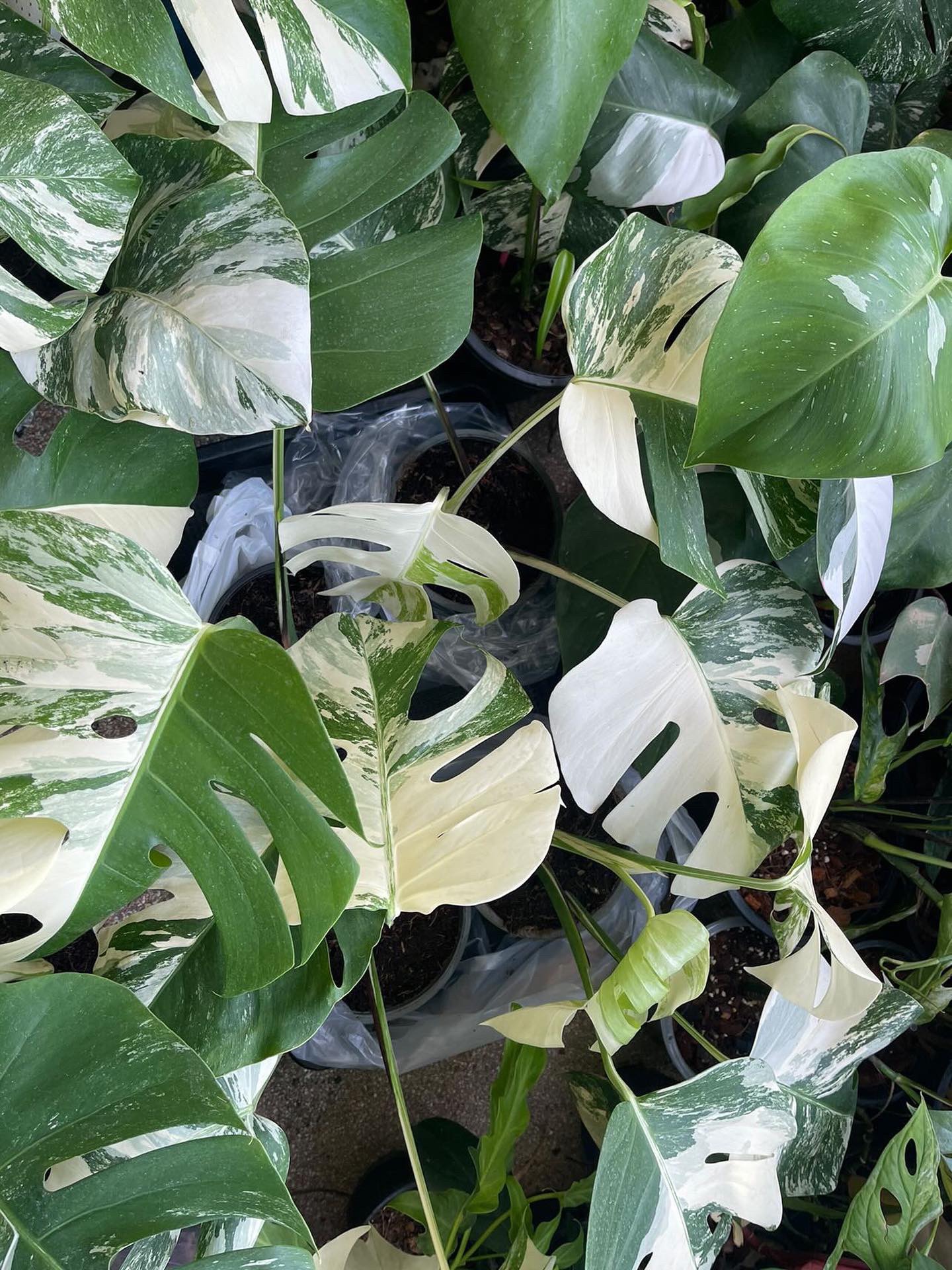
Secret 2: Slow Growth Rate Drives Up Costs and Waitlists
In addition to fussy genetics, Monstera Albo is slow growing compared to solid green Monstera Deliciosa. This makes commercial production a test of patience for propagator and buyer alike!
A typical green Monstera can grow over a foot per year under ideal conditions. Meanwhile, even healthy Albo Monsteras put out leaves at a glacial pace—often maxing out at around 4 leaves per year.
The white variegation mutation is likely the cause, as less chlorophyll means slower energy production for powering new growth. Slow growth plus unstable variegation equals a plant that can rarely be rushed to market.
High Time Investment for Propagators
Propagators must invest significant time, sometimes years per plant, before they have a sizable Albo Monstera ready for sale. The longer production time ties up greenhouse space and inventory budgets. Slow turnaround times beget higher prices to recoup costs.
Long Waitlists for Buyers
Limited supply plus sky-high demand means Monstera Albo sales often involve long waitlists for buyers. Well-variegated cuttings can easily amass waitlists of 200+ people and wait times over a year! Buyers planning ahead and willing to wait get first pick of rare plant inventory.
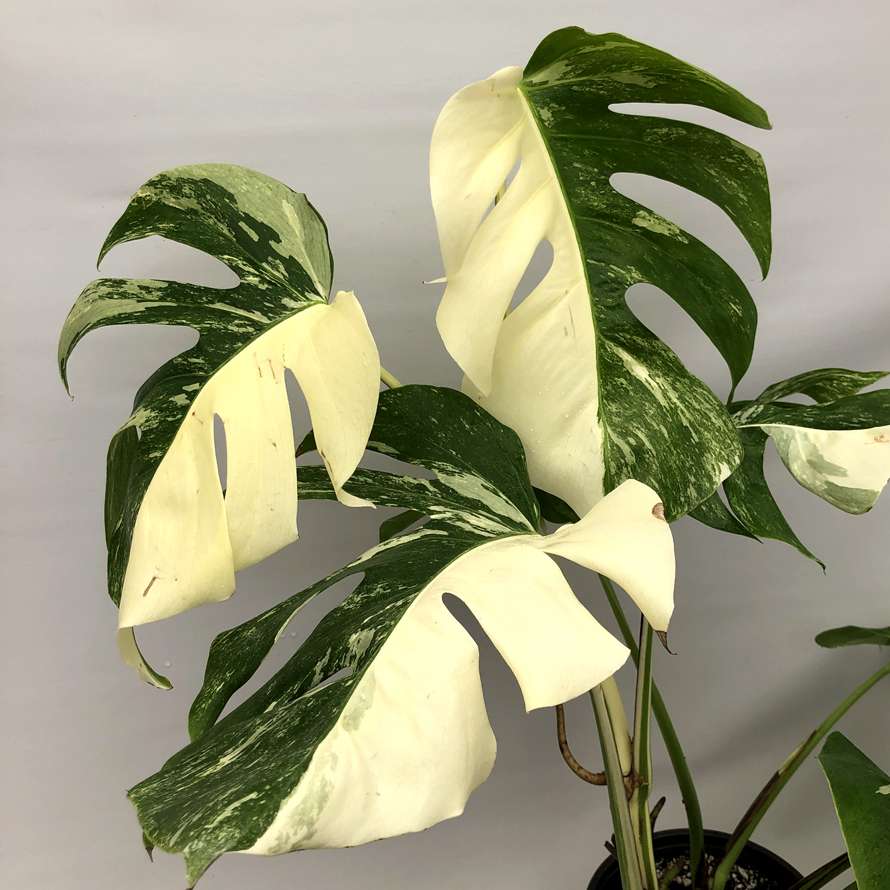
Secret 3: Intensive Labor and Care Requirements
Producing Monstera Albo is a labor of love—and we do mean labor. Keeping plants alive through propagation is arduous enough without factoring in the hands-on care required to nurture stellar white variegation.
Achieving near-perfect Albo variegation takes skill, vigilance, and often lots of pruning or tissue culture cloning. All that intervention equals hours upon hours of tedious propagations work to create plants worthy of high price tags. “Explore the detailed care requirements for Monstera Albo.”
High Maintenance Pruning and Grooming
To achieve showstopping variegation, propagators prune away less desirable leaves and growth points that lack white pigment. This grooming continues periodically as the plant matures too. Keeping Albos “in shape” takes time and plant chemistry mastery.
Tissue Culture Cloning Mitigates Genetic Instability
Many top-grade Albo Monsteras originate from expert tissue culture (micropropagation) instead of traditional cuttings. This complex sterile laboratory technique clones plant tissue to minimize genetic variation between offspring. However, tissue culture is extremely technique-sensitive, costly, and time intensive.
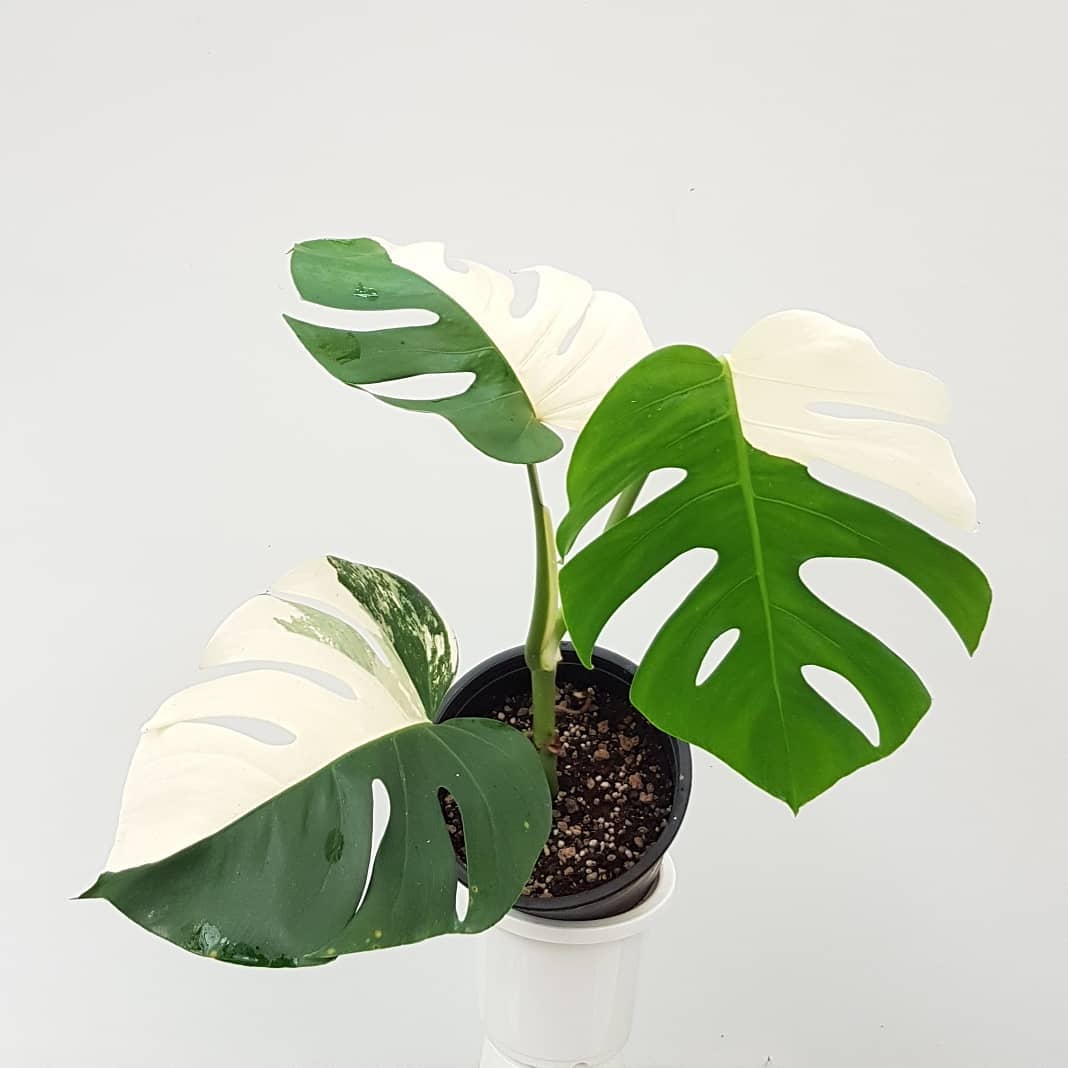
Secret 4: Global Logistics Bottlenecks Drive Up Prices
The plant craze has gone fully global, powered by enthusiasts sharing photos on Instagram and TikTok. Hot new varieties like Monstera Albo often release first through specialty growers in Thailand, Indonesia, or European plant breeders. “Understand the impact of global logistics on rare plant availability.”
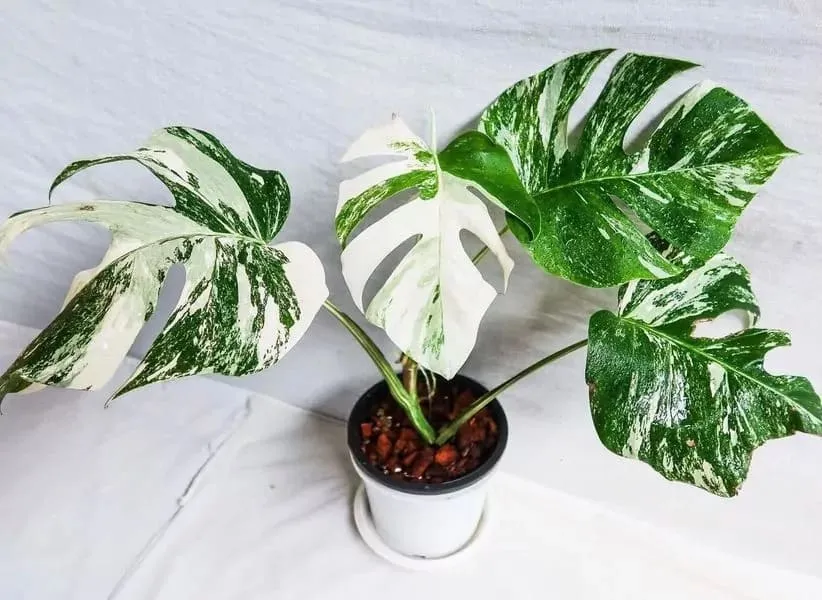
Export logistics are struggling to keep pace with worldwide plant commerce. Limited cargo space, customs delays, paperwork requirements, and phytosanitary compliance all make international plant shipping incredibly complex and costly. Travel mishaps can lose entire crops too.
These global supply chain woes get passed onto buyers via inflated plant pricing. And the more rare and coveted the plant variety, the more retailers must build-in financial buffers for the many risks involved. It’s not at all unusual for a $200 cutting to incur $100+ in international shipping fees alone.
Short Supply, Long Demand Drives Up Prices
With demand far outpacing what expert growers can export sustainably, basic economics take over. Limited rare plants like Monstera Albo can command whatever price the market bears. Auction sales often see cutting prices rising into the stratosphere.
Extra Financial Buffers for International Risk
Getting delicate living plants from Asia/Europe to the Americas or Middle East is fraught with delays and regulatory hurdles. Buildings extra profit margin for replacement shipments is key to sustainable global rare plant businesses. Buyers ultimately carry these logistical costs at checkout.
Monstera species are the most sought after by aroid plant lovers
Conclusion
So there you have it—the secrets behind the staggering cost of rare white variegated Monstera Albo plants. A delicate genetic mutation plus ample propagation struggles, slow growth habits, labor-intensive care requirements, and complex global plant shipping logistics all contribute to price tags from the hundreds into the thousands!
But all that hands-on plant matchmaking does help explain why newcomers are willing to shell out a month’s rent just to bring one of these white whale plants home. The bragging rights that come with raising a healthy, stunning Monstera Albo is priceless for die-hard plant collector!

